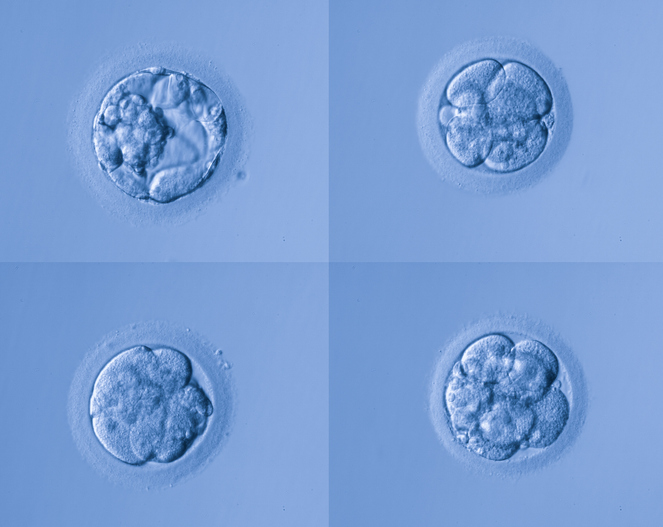.png)
.png)
Whether donating time, money, hair, blood, we donate because we believe it makes the world a better place. We are wired to feel happy, and when we give we not only feel happy, we also feel a sense of connectedness to those around us. Egg donation is one of those things that can not only make you feel as though you are making a difference, but an act that can create life and family tree branches that may never have existed otherwise.
Deciding to donate your eggs is a generous and compassionate act that provides hope to many families dreaming of a child. So even though the decision to donate your eggs may be an easy one, sometimes deciding if you should or should not tell friends and family about your donation, may not be as easy. In this article, we’ll discuss some of the considerations for sharing your egg donation journey.
Should I tell my family I’m an egg donor?
While there is no right answer, one thing is for certain, your decision to donate is yours and your alone and so is your decision to tell or not tell. This means you are the one who can best make this decision.
So when thinking through this decision, it is helpful to think about the relationships you have and what you feel comfortable telling those close to you. How supportive will they be about your decision? Do you feel afraid they might criticize you or not understand why you would want to do this, or try and talk you out of it? What is your fear or concern about telling, and how do you think this information will impact your relationships?
Something else to keep in mind is that when the egg donation process starts, you will be required to self-administer hormone injections for approximately two weeks. You will also need to have daily medical ultrasound appointments. And since egg donation is a medical procedure, you will not be able to drive home alone and will need someone to be with you after the retrieval. You may even need a few days off from work or school if you experience side effects. So, if you live with friends or family, it may not be easy to keep it from them.
Also you need to keep in mind that donating your eggs doesn’t just impact you. It impacts your entire genetic family because now they too will be genetically connected to the offspring conceived using your eggs. For example, if you decide not to discuss your egg donation with your family and keep it all under wraps, what happens if in a few years your mother does an at-home-DNA test and sees that she has a ‘grandchild’ out there. Would you rather just explain as things like this come along or would you rather prepare your family members beforehand?
If you do decide to talk about your plans to donate your eggs, be ready for a wide range of responses, including negative reactions, and uneducated (but well meaning) questions and opinions on the topic. Also be prepared for a lot of surprise and praise and revelations about their own fertility journeys.
Does my significant other have to know I’m donating eggs?
Just as noted above, because of the medical process related to egg donation, it may be difficult to not have your significant other involved, especially if birth control methods need to change. If you include your partner from day one, they might feel more comfortable and supportive of your decision to donate because they will be well educated about egg donation.
However, even if they are involved from the beginning, some may still not feel comfortable with this decision because of how they view the potential donor conceived person - they may still see this person as an extension of you and that may be uncomfortable. And if you already have children, your partner may be concerned about any potential impact on the donor-conceived person’s relationship with your children. In these cases, clarifying roles and educating partners will be very important.
Benefits of sharing
The benefits of telling your friends and family during the process means they can provide emotional and practical support, such as helping with injections or driving you to your appointments, and helping care for you after the retrieval. Also, talking about your donation helps educate people and remove some of the stigma that comes along with egg donation. It can also help you learn more about your family tree, their background and health histories.
How do I tell people I’m donating my eggs?
If you decide to tell family / friends about your decision to be an egg donor, start off by talking about your motivating factors, such as your desire to help parents build their families. Give them facts about why people need donors and who these people are… put a human face to it. Give whatever information you feel comfortable sharing, let them absorb, process, and then come back to you with more questions.
How do I tell my future (or current) children I donated my eggs?
Telling your children about your experience as an egg donor teaches them by example the importance of giving and good will, and the idea that we are all connected. How you approach the subject will make a big difference on how they receive the information. If you approach it with pride and honesty, they too will receive it in a very positive manner.
Depending on their age and level of understanding, children’s reactions vary. Younger children usually cope well with the information, especially if you explain it in age appropriate language. Older children may also have various reactions. Sometimes they just need more time to process it, including a need to understand how it will impact them and their lives.
Regardless, keep it simple. Explain your reasoning. Describe the process. If you know, tell them about the parents you helped and the outcome.
Summing it up
The world of infertility treatment is changing. At one time, needing help to create a family was a matter of secrecy. But now because of human generosity and the incredible advancement of technology, people who never believed it possible, can be parents. Further, medical societies and research encourage parents to tell their child how they were conceived. In the same manner, donors are also advised to be open about their donation. You might be surprised by the support and praise you receive from your friends and family.
Cofertility is in the “family” business, striving to make egg freezing and third-party reproduction more human-centered and accessible for all. Our Freeze by Co program allows you to freeze your eggs for free, when you give half to a family who can't otherwise conceive





.png)




